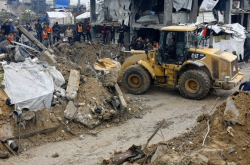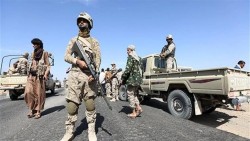Coronavirus: Sleepless nights for doctors in a war zone
- 2020-05-25 18:02:53


 Pierre Rayer: Art, Science, and Happiness: The Universal Mission of Transmission to Future Generations through Patronage at the Louvre Abu Dhabi
Pierre Rayer: Art, Science, and Happiness: The Universal Mission of Transmission to Future Generations through Patronage at the Louvre Abu Dhabi Ahly crowned Super champions after dramatic extra-time win over Modern Future FC
Ahly crowned Super champions after dramatic extra-time win over Modern Future FC Yemeni Honey..A Development Wealth Threatened By Conflict And Climate Change
Yemeni Honey..A Development Wealth Threatened By Conflict And Climate Change California wildfires: Millions warned of possible power cut
California wildfires: Millions warned of possible power cut Central African rebels launch attacks near capital
Central African rebels launch attacks near capital US aims for international Gaza force deployment in early 2026, say US officials
US aims for international Gaza force deployment in early 2026, say US officials STC Forces Launch “Operation Decisive Resolve” in Abyan as Continuation of “Arrows of the East”
STC Forces Launch “Operation Decisive Resolve” in Abyan as Continuation of “Arrows of the East” Lebanon says it is ready to demarcate border with Syria
Lebanon says it is ready to demarcate border with Syria House Democrats release Epstein photos with Trump, Bannon, Clinton and others
House Democrats release Epstein photos with Trump, Bannon, Clinton and others EU agrees to indefinitely freeze Russian assets, removing obstacle to Ukraine loan
EU agrees to indefinitely freeze Russian assets, removing obstacle to Ukraine loan
